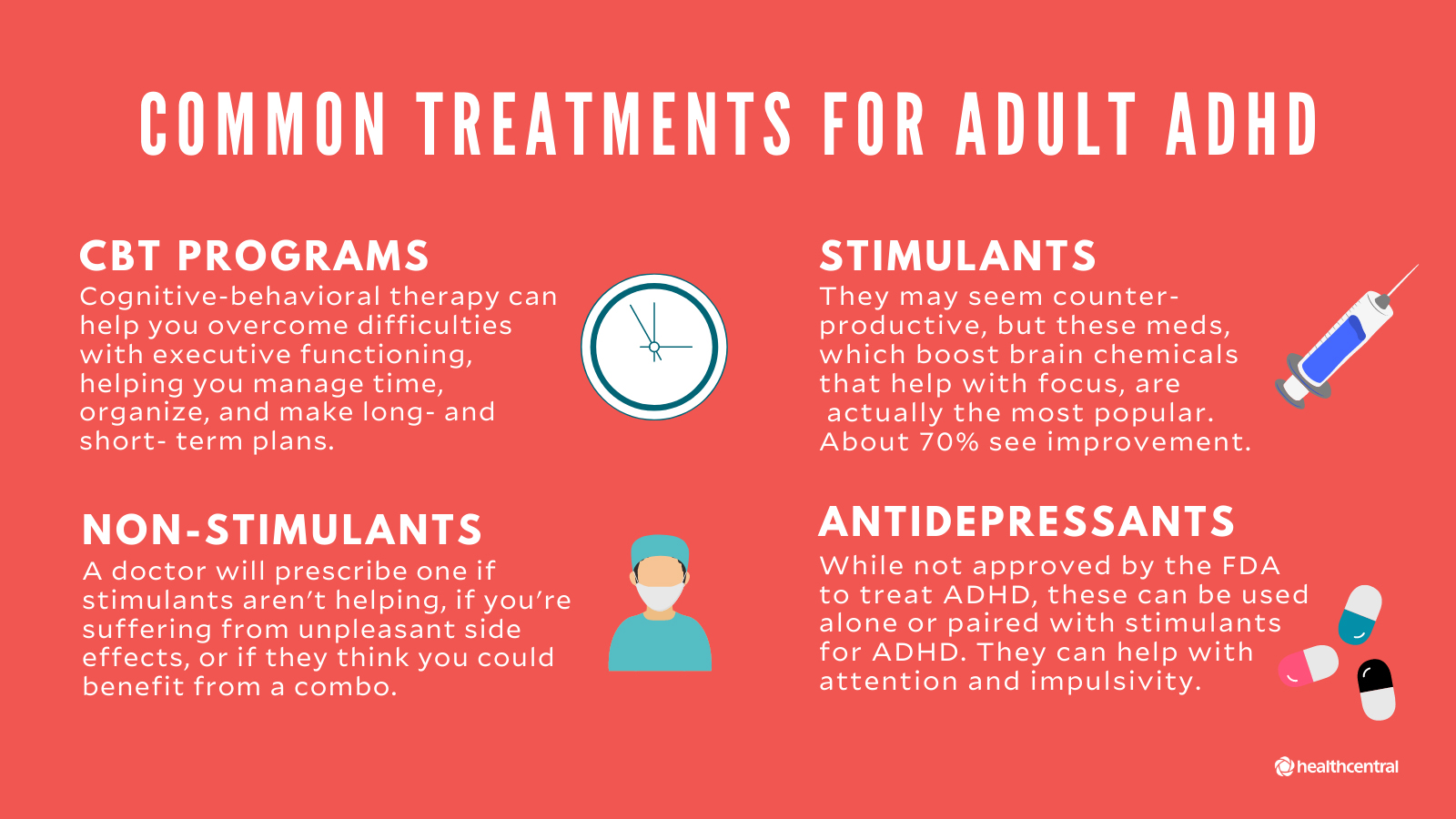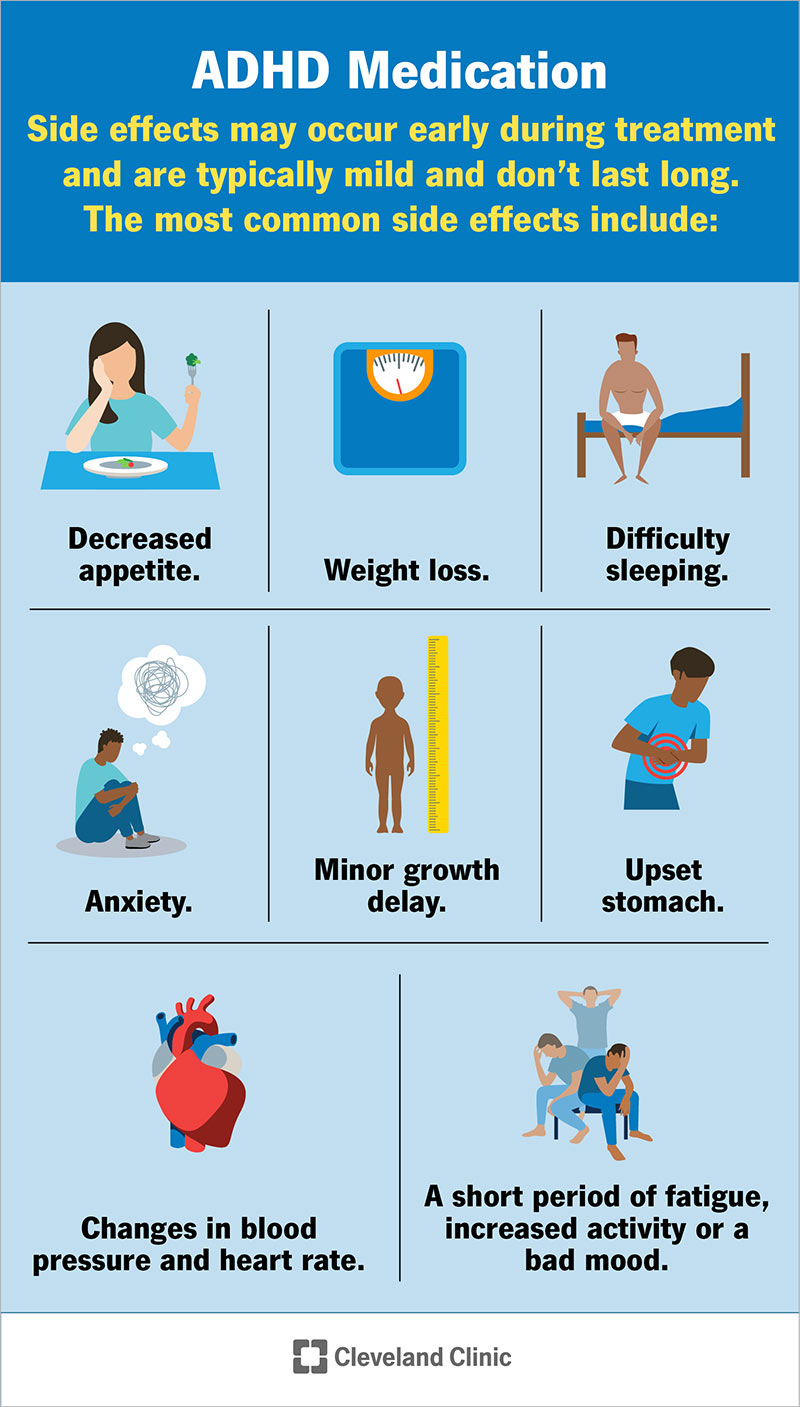Mental Health Services Focused for Effective Care Needs
Mental Health Services Focused for Effective Care Needs
Blog Article
Your Guide to Finding the Right ADHD Treatment for Lasting Results
Navigating the complexities of ADHD therapy requires a nuanced understanding of both the disorder and the myriad choices available for effective management. It is important to acknowledge that what works for one individual may not necessarily produce the exact same outcomes for another.
Recognizing ADHD and Its Impact

In adults, ADHD can bring about difficulties in workplace atmospheres, influencing efficiency, time management, and interpersonal relationships. Commonly, undiagnosed or improperly handled ADHD can add to co-occurring mental health issues, such as anxiety and clinical depression, additional complicating a person's general well-being.
The societal perception of ADHD can vary, leading to preconception and misunderstanding, which may hinder individuals from seeking assistance. As recognition expands, it is important to foster an environment that promotes understanding and assistance for those affected by ADHD, emphasizing the demand for exact diagnosis and tailored approaches to alleviate its influence on daily life.
Introduction of Therapy Options
An extensive technique to treating ADHD includes a range of choices customized to the person's unique requirements. These options can generally be categorized into behavior interventions, psychoeducation, and way of living modifications, alongside pharmacological therapies that may be explored later.
Behavioral treatments, such as cognitive-behavioral treatment (CBT), concentrate on customizing specific actions and establishing coping techniques to take care of symptoms successfully. Psychoeducation plays a vital duty in empowering both people and their family members by supplying details about ADHD, its obstacles, and effective techniques for assistance.
Lifestyle modifications can dramatically influence ADHD administration. Routine physical activity, a balanced diet regimen, and appropriate rest add to total well-being and sign control. Mindfulness methods and relaxation techniques can additionally improve focus and minimize impulsivity.
Support teams and family treatment can promote a feeling of community and understanding, assisting individuals really feel less separated in their experiences. Each therapy alternative ought to be considered in conjunction with the individual's preferences and circumstances, guaranteeing a holistic approach that advertises lasting success. Inevitably, the goal is to produce an individualized treatment strategy that resolves the certain challenges connected with ADHD while boosting general lifestyle.
Drug: Advantages And Disadvantages
Medicine plays a pivotal duty in the treatment of ADHD, with numerous choices available that can considerably alleviate signs and pop over to this site symptoms for numerous people. Stimulants, such as methylphenidate and amphetamines, are commonly recommended and have revealed effectiveness in improving focus, lowering impulsivity, and enhancing total habits. These medications work by increasing dopamine and norepinephrine degrees in the mind, which are typically dysregulated in those with ADHD.
Some individuals may experience side impacts, including sleep problems, decreased appetite, or increased stress and anxiety. Furthermore, not all people react to stimulant drugs, leading some to explore non-stimulant options, which may have a delayed beginning of activity or various side results.
It is essential for individuals and their households to consider these advantages and disadvantages carefully. Balancing the benefits of symptom monitoring versus possible negative effects is critical for attaining optimum therapy end results. Cooperation with doctor can promote enlightened choices, making sure that medicine is part of a comprehensive ADHD management strategy.
Behavior Therapy Techniques

One frequently utilized technique is Cognitive Behavior modification (CBT), which assists individuals identify and change negative thought patterns that add to ADHD-related challenges. Therapist for ADHD. Via CBT, customers find out to establish realistic goals, take care of time properly, and develop business systems
One more effective technique is Parent Monitoring Training (PMT), which enlightens moms and dads on exactly how to strengthen positive actions and lower adverse ones with consistent discipline and interaction approaches. This technique promotes a supportive home Website setting that motivates behavioral improvements.
Social abilities training is additionally integral, helping people with ADHD browse social communications a lot more properly. Role-playing and modeling proper actions can boost social skills and lower anxiousness in social circumstances.
Lifestyle Modifications for Better Management
How can way of living changes dramatically enhance the administration of ADHD symptoms? Executing critical lifestyle adjustments can lead to considerable renovations in emphasis, organization, and emotional law for individuals with ADHD.
First of all, developing an organized daily routine aids in developing predictability, which can reduce sensations of bewilder. Regular schedules for meals, research study, and rest can boost day-to-day performance.
Including regular physical activity is why not try these out likewise vital, as workout has been shown to boost dopamine levels, improving focus and motivation (Therapist for ADHD). Aiming for a minimum of thirty minutes of moderate exercise most days can be helpful
Nourishment plays a pivotal role. A balanced diet abundant in omega-3 fats, entire grains, and healthy protein can sustain cognitive feature. Restricting refined sugars and high levels of caffeine may decrease signs, as these can result in energy crashes and irritability.
Conclusion
In conclusion, locating the best ADHD therapy requires a multifaceted technique that considers specific requirements and choices. Partnership with medical care experts and open interaction with support networks are essential elements in browsing the complexities of ADHD monitoring, ultimately leading to long-term results and enhanced quality of life.
Report this page